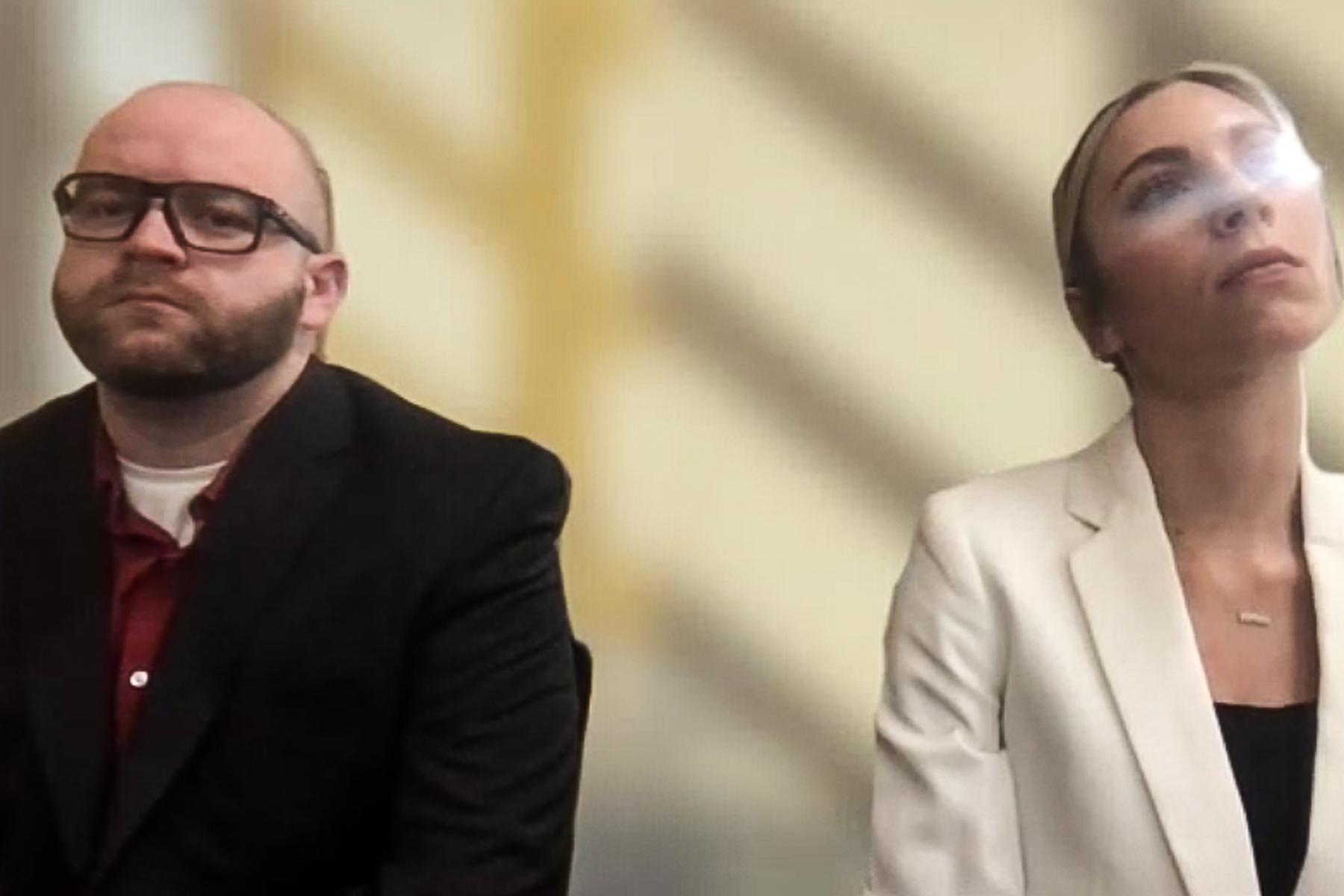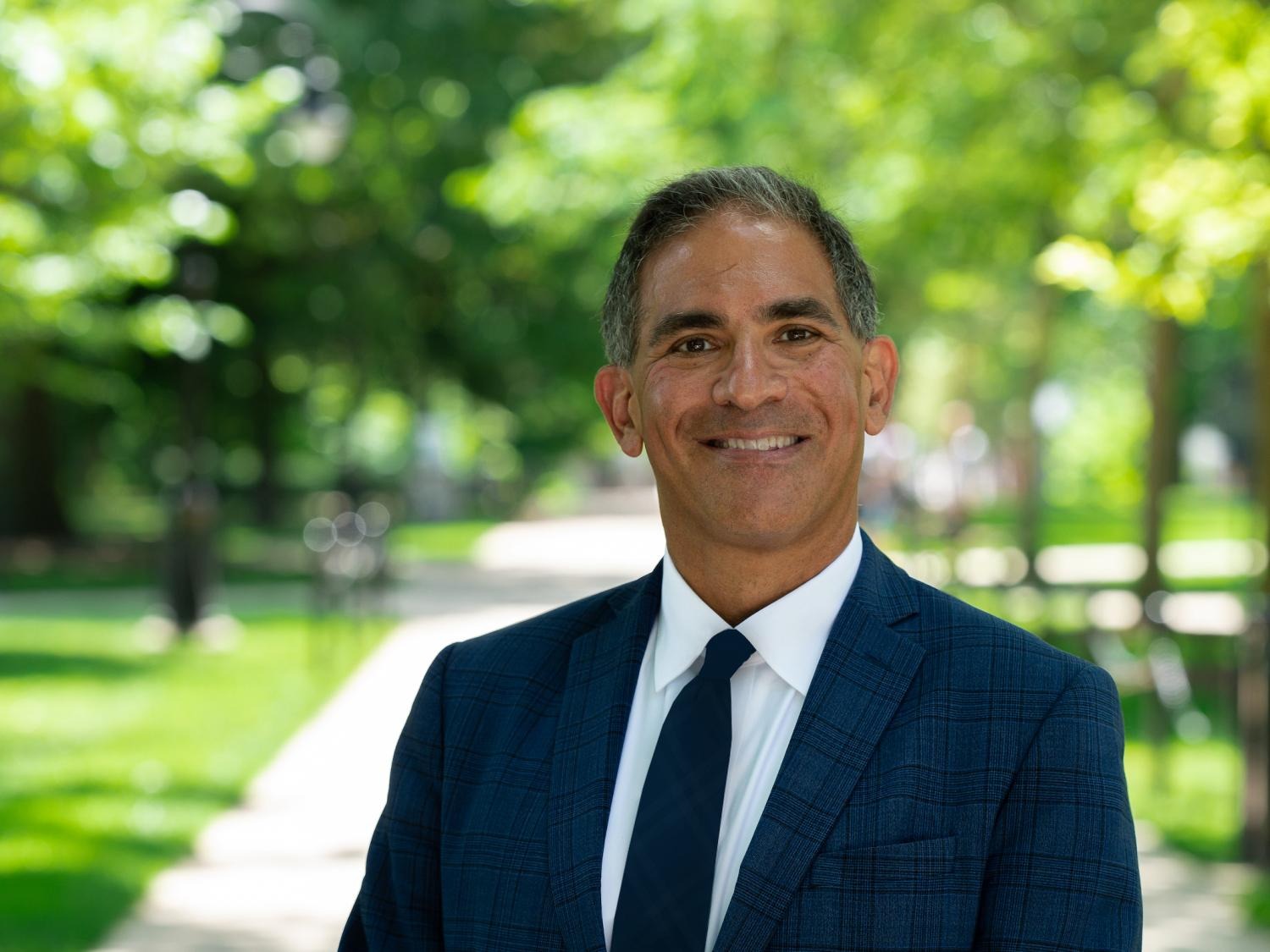
In an effort "to teach kids how to think and not what to think," outgoing University of Colorado president Bruce Benson said CU will expand its Conservative Thought and Policy program.
Benson shared the news during an interview about his legacy with Colorado Matters. The program's expansion means hiring a full-time tenured faculty member to manage it.
"I believe in political diversity. If you want to go back about 100 years ago, the conservative-liberal mix was one to one. In the '50s, it got up about five liberal to one conservative," he said. "And now it’s even higher."
The outgoing president announced his retirement last year after more than a decade at the post, triggering a tumultuous search for his successor. The selection of Mark Kennedy as the sole nominee brought backlash and protests from faculty, staff and students over Kennedy's record as a Minnesota congressman. The CU Board of Regents confirmed Kennedy earlier this month along party lines, and he'll assume Benson's role in June.
Benson said the "grilling" of Kennedy was part of the process, but also counterproductive.
"The problem with the grilling that they give you is it’s not about 'how do you run this university?' The issues they were talking to him about, I don’t believe anybody’s brought up to me since I’ve been here," he said. "Nobody comes to my office and asks me about gay marriage. It just never happens. What they’re interested in is how we’re going to run this university... You really should be talking about a $4.5 billion enterprise, and how with 70-some thousand students and 34,000 employees, how do you make this work, and four campuses. It’s a very complex organization."
Benson said he advised Kennedy to keep some of the existing chancellors and vice presidents, and the institutional knowledge they carry, since he has "got a lot of learning ahead."
Funding, a perennial issue, will also be a big challenge awaiting Kennedy, he added.
"We’re moving at the right direction, but we’re so far underfunded compared to other places," Benson said.
Looking back on his legacy as he departs the CU system, Benson said he is proud of the culture he created there, like encouraging interdisciplinary degrees.
"Culture is critical," he said. "You need to get a culture where people respect each other, where they collaborate together, they work together on everything that you can imagine."
Full Transcript
Ryan Warner: It’s Colorado Matters from CPR News. I’m Ryan Warner. The University of Colorado selected a controversial nominee to serve as its president and the vote to approve him was along party lines. Sound familiar? You probably think I’m talking about Mark Kennedy but all the same applied to Bruce Benson when he was picked more than ten years ago. The former oilman joins us now to reflect on his tenure leading the four campuses and on what his successor will face. And Bruce Benson, welcome back to our program. Bruce Benson: Glad to be with you. RW: Mark Kennedy was the sole nominee from the Board of Regents but nonetheless went through a bruising interview with students, faculty, staff. There was concern about his past votes in Congress on LGBT issues and Affirmative Action. The final vote of the Regents was 5-4 with the Republican majority winning out. What were your thoughts as you watched? BB: Well some of the people, including Ken McConnellogue, went up and listened to them grilling him at Boulder and their comment was it was a lot tougher on me because he was there mine also. So there were two of our staff that went up and heard all of that. So I mean it’s just part of the process. You just go on. And the problem with the grilling that they give you is it’s not about how do you run this university. The issues they were talking to him about I don’t believe anybody’s brought up to me since I’ve been here. You really should be talking about a $4.5 billion enterprise and how many—you know, 70-some thousand students and 34,000 employees, how do you make this work and four campuses. It’s a very complex organization. RW: You mentioned Ken McConnellogue, this is your head of communications who you say saw your vetting and saw the vetting years later of Mark Kennedy. BB: Right. RW: And thought yours was harder. That is, you think the questions that faculty and staff were asking were not the right ones? BB: I think they’re not the right ones. Nobody comes to my office and asks me about gay marriage. It just never happens. What they’re interested in is how we’re going to run this university. So that’s what the faculty, staff, students all want to talk about. I never hear about these things. But when I was up for it, they asked me a lot of questions that didn’t have much to do with it, either. RW: What advice do you have for Kennedy when it comes to running the behemoth that is CU—more than 67,000 students, a budget of over $4 billion. I’ll say a much larger system than Kennedy’s current University of North Dakota. What advice do you have? BB: Well I told him first of all, it’s a very complicated place. You’ve got a lot of learning ahead of you. We’ve got a very strong staff. I would urge you keep the staff, that’s the four chancellors, the seven vice presidents and a few others that are critical because they know what’s going on here and they can guide and help you so that you’ll be successful. And if you do make mistakes, they’re going to know how to dig you out of that hole and help you. RW: The continuity you think is important? BB: Well it’s not just continuity, it’s knowledge. It’s who’s got the knowledge. I mean you’ve got a chief of staff that I think had five presidents he’s been chief for. If you take Ken McConnellogue over here, he’s worked for two presidents and elsewhere. So, if you look at all of this staff and these chancellors, you better pay attention to them because they know what they’re doing and so that’s what I urged him to do. He also said I would like to ask anyone of those that want to leave early, to give me a year’s notice. So, that—he understood what I had to say to him. RW: What do you think is the biggest challenge or the first challenge, frankly, that Kennedy should take on? BB: Well I don’t know the first challenge but the biggest challenge we always have is funding. Colorado ranks 47th out of the 50 states as far as funding for higher education. We continually get budget cuts although this year, we’ve got a 13 percent increase which is good but when I started here, we were getting $227 million from the state to run the place. We dropped down to about $145 million and have now built our way back up to $245, I believe, about that. So we’re making—moving at the right direction but we’re so far underfunded compared to other places. And when Mitch Daniels and Purdue said I’m going to freeze my tuition, I thought well if I was getting the amount of state support that you’re getting, I’d probably cut my tuition in half. So we are way behind the power curve on this and so we have to continue to work and find ways to make it work. And that’s what we did during the big downturn in ’08/’09 that we had to really cut things back and we did that. We cleaned the place out. We got rid of a lot of stuff we probably shouldn’t have so we got a good balance in here. But we’ve already done that. So this is sort of where we are now but who knows what’s going to happen in the future. RW: You know, a lot of people have made hay of the president’s compensation package and they look at that and they say well, that’s just not a sign of a university system that seems to be struggling for money. What do you say? BB: Well what I wanted to get paid was $1 a year but they wouldn’t do it, so they paid me $300 and some thousand dollars a year so it’s not exactly overpaid. The mistake on that is I really should have insisted on that because that caused wage compression and people that are very, very competent have been held back. So, I think it’s a very complicated, big job. There are presidents that are making $2 and $3 million a year. It’s a huge job. I don’t think people understand the complexities of the job here in the state of Colorado. RW: We'll look back at a few things that occurred during your tenure with CU. What would you say your legacy will be, Bruce Benson? BB: Well, it’s kind of funny but it’s a cultural change and culture is really, really important. I’ve had a lot of these discussions with other leaders, not in education, but elsewhere. Culture is critical. You need to get a culture where people respect each other, where they collaborate together, they work together on everything that you can imagine. RW: Was that not true before your arrival or not true enough? BB: It’s not true enough, no. It never was. And I mean we had a meeting early on when I started with vice presidents and chancellors and I said well, we got a little extra time, what are you guys all working on? Oh, you’re doing that? Well I am, too. Well why don’t we collaborate? Why don’t we work together? We had a tenure case where they were going to refuse the tenure to this woman—and I’m not a big tenure person—but it’s part of the system so you have to support tenure. So, we found out the problem was that the people in the department didn’t think she should get tenure because she wanted to do interdisciplinary studies. That’s what I want to hear. I want to hear people doing those kinds of things. So, I encouraged that and collaboration across the whole campus, all the campuses. On the campus and with the other campuses. So I think we have that going pretty well right now. Is it perfect? No, never. Nothing is ever perfect but we are in the process of making that happen. I also believe in political diversity. If you want to go back about 100 years ago, the conservative-liberal mix was one to one. In the '50s it got up about five liberal to one conservative and now it’s even higher. This is—we need to teach kids how to think and not what to think. So let them hear all points of view, free speech, the whole thing. So that’s how I believe and that’s what I think is an important cultural change at the University of Colorado and when you bring in theses controversial speakers, which I’m not bringing in but the students bring them in, we had this one guy that everybody knows about. We gave out three tickets at his event, two to older people we don’t know, one to a graduate student. At Berkeley, they had mass riots. Had another one, nobody did a thing when we had this other guy. At Middlebury they put people in the hospital. So, we’re teaching respect and how you work with people and collaborate and get people to work together. RW: I’ll note that, in 2013 CU Boulder, regarded as one of the most liberal universities in the country, began a Conservative Thought and Policy program. BB: Yeah, that’s the one I pushed. RW: Yeah. But it sounds like you think there’s a lot more room for growth in the conservative presence on campus. BB: Yeah, it’s not just conservatives, it’s all presence, but to hear all points of view is what I really stress because you don’t need to be working in a vacuum and as I said, teach people how to think and not what to think. That’s what education is about. So we’re going to continue to expand that program. We’re expanding it more right now and we’ll be hiring a full-time tenured faculty member to run the program in the next few months. RW: Okay, Bruce Benson, outgoing President of CU, I want to play a little game of lightning round with you. So, I’m going to name something that took place during your tenure with CU. Why don’t you give me a few top of mind thoughts? The A-Train to DIA. CU paid $5 million for the naming rights. Was that a good decision? BB: Yes. We’re not—and you know, they wrote an article in the paper and it said you know, it doesn’t even hook your campuses together. Well you know what, my campus is employees, students, staff, everybody, they know what we are. We’re trying to attract the other people and let them know what’s going on. So you have out-of-towners, out of United States people coming in, let them get on that train and hear what we’re all about. It’s a very important piece of our marketing program. RW: Is it that not enough people know about CU? BB: Well if you’re from New York or Europe and you come to Colorado, you may not know much about CU so I think it’s important that people do know it. And I think it was money very well spent. We have people say you should have reduced tuition. I did the math years ago on this thing. It’s like a few cents per credit hour if you reduce tuition. No, this is a very well spent money. RW: Okay, joining the Pac-12 Conference. BB: What do you want to know? RW: What are your thoughts about it? BB: I think it’s the best thing we’ve done. RW: Tell me why? BB: Huh? RW: Yeah, tell me why? BB: Well it’s real simple. I mean let’s start with this. Our alumni base in the old Big 12 without Colorado was about 11,000. In the Pac-12, it’s 50-some thousand, as I recall. I don’t have the numbers right here. That’s a big deal having the alumni base. Then you start looking at recruiting. Where do we recruit a lot of non-resident students? California and places like that. Another thing that most people wouldn’t even think about—who are our research partners? And they’re places like Berkeley and Stanford and UCLA, Wisconsin—or, excuse me, Washington. These are our research partners that we do a lot of work with. So that’s what you should be working together with all the time. And then on top of it, if you want to take people to events at other campuses, do you want to take them to some of these smaller schools or states, excuse me, cities, in the mid-continent or do you want to go to, you know, UCLA or LA? RW: Bruce Benson, thanks for being with us. For more than a decade, he has led the University of Colorado, the longest serving president in 65 years. His successor, Mark Kennedy, starts in June. This is Colorado Matters from CPR News. |









